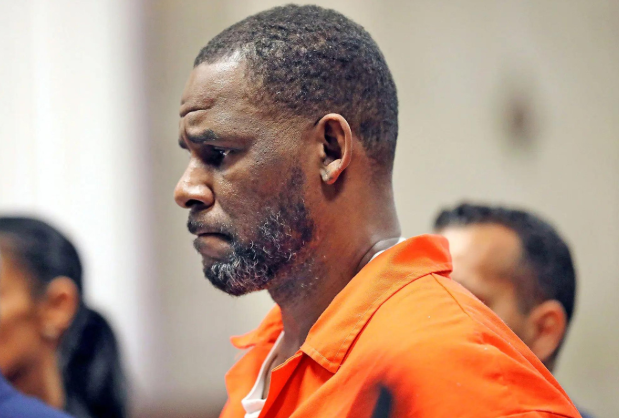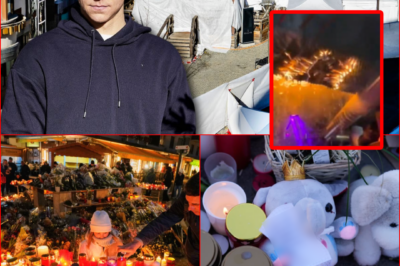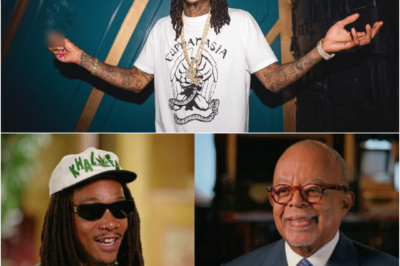Once hailed as the King of R&B, R. Kelly’s story has taken a sinister turn — one that blurs the line between justice, corruption, and survival.
In June 2025, Kelly’s legal team dropped a bombshell: a federal court motion claiming that the singer’s life is in grave danger. According to his attorney, Bo Brindley, Kelly is allegedly the target of a murder plot orchestrated by prison officials and members of the Aryan Brotherhood — a white supremacist gang with influence inside U.S. prisons.

The shocking claim came from Mcquille Glenn Stein, a terminally ill inmate who alleged he was offered early release in exchange for assassinating R. Kelly. In his sworn statement, Stein painted a chilling picture of a prison system willing to kill in order to protect its secrets. He claimed officials ordered him to silence Kelly before he could reveal information that could implicate the Bureau of Prisons and the Department of Justice in acts of corruption.
But in a dramatic twist, Stein reportedly changed his mind — warning Kelly instead of going through with the hit. His testimony has ignited nationwide outrage and renewed debate over corruption and abuse inside federal prisons.

Following the revelation, Kelly’s ordeal worsened. He was placed in solitary confinement, where conditions deteriorated rapidly. Sources close to his legal team claim he became too afraid to eat, fearing his food might be poisoned. His lawyers argue that this so-called “protective custody” is actually retaliation for exposing the assassination plot.
The case against Kelly has long been controversial. His attorneys maintain that his prosecution was riddled with constitutional violations and misconduct — suggesting that powerful figures wanted him silenced. In an unexpected move, his team even appealed to former President Donald Trump for a pardon, claiming Kelly is a victim of a corrupt legal system.
Despite the chaos, Kelly hasn’t stopped creating. Reports indicate he’s written up to 25 albums while incarcerated — though his health has dramatically declined. In mid-2025, he was rushed to the hospital after collapsing from blood clots in his legs and lungs, allegedly due to medical neglect by prison staff. His lawyers say he repeatedly begged for help but was denied treatment.

Then came another twist — from Kelly’s former cellmate, Ronnie Bo, who stepped forward with explosive allegations about the forces behind the singer’s downfall. According to Bo, Kelly was targeted by powerful figures in the music industry who wanted control over his estimated $1.2 billion music catalog.
Bo further alleged that Jay-Z played a key role in Kelly’s career collapse — claiming that tension between the two artists stretched back decades. He said Kelly was originally meant to collaborate with Tupac Shakur on “The Best of Both Worlds”, but after Tupac’s death, Jay-Z replaced him. What followed, Bo claims, was a bitter rivalry, death threats, and a media smear campaign — culminating in the “Surviving R. Kelly” documentary, which Bo alleges was partly funded by Jay-Z to destroy Kelly’s reputation.
If true, these claims paint a disturbing portrait of a music industry fueled by greed, manipulation, and silent wars — and a justice system possibly complicit in silencing one of its most controversial stars.
As R. Kelly’s fight for his life continues behind bars, the world watches in uneasy anticipation.
Is this simply the fall of a disgraced musician — or the unraveling of something much darker?
News
“HEART-WRENCHING MOMENT…” — Vict!ms of the Swiss Bar Fire Gather for Mem0rial, Bearing Seri0us Injur-ies and the Pain of L0ss
Victims of the Swiss ski bar inferno that killed 40 people gathered today at an emotional memorial service, bearing the…
“HEART-WRENCHING…” — 19-Year-Old Teen Recounts the Terr!fying Moments During the Bar Fire in Switzerland, the Chaotic Scene Leaving Him in Complete Disbelief
1 of 6 | Dozens of people are presumed dead and about 100 injured following a fire at a Swiss Alps bar…
🕵️ “THE FINAL CLUE…” — Michael Henry, 38, Disappears Mysteriously in Deerfield Beach, Police Call on Public to Help Find His Whereabouts
The Broward Sheriff’s Office is seeking assistance from the public in searching for 38-year-old Michael Henry. According to detectives, he…
“THERE WAS NO WAY OUT…” – The haunt!ng account of a 19-year-old surviv0r of the bar fire, his voice trembling as he recounted the life-and-de-ath moments, leaving everyone stunned
Emotional scenes after the fire during a New Year’s Eve party in the ski resort of Crans-Montana. /Lisa Leutner/Reuters Swiss…
🧬 “A JOURNEY FROM HIS ROOTS…” — Wiz Khalifa Breaks Down in Tears While Discovering His Ancestral History on Finding Your Roots
Trib Total Media TV writer Rob Owen offers a viewing tip for the coming week. For the 12th season of…
“A STRATEGIC MOVE…” — Amadou Onana Has Officially Signed With Lil Wayne’s Young Money Sports Agency
Midfielder Amadou Onana has officially joined Young Money Sports, the sports agency founded by legendary rapper Lil Wayne — marking…
End of content
No more pages to load












